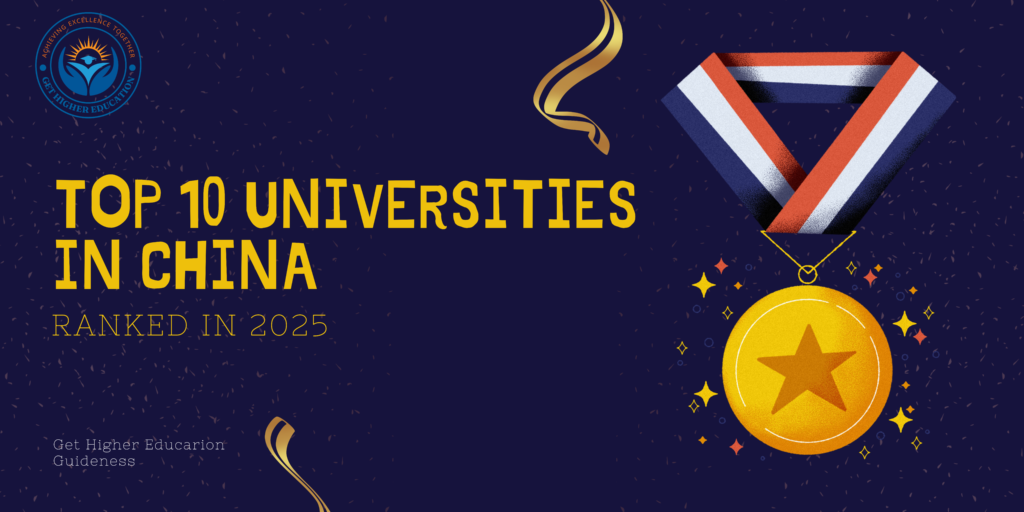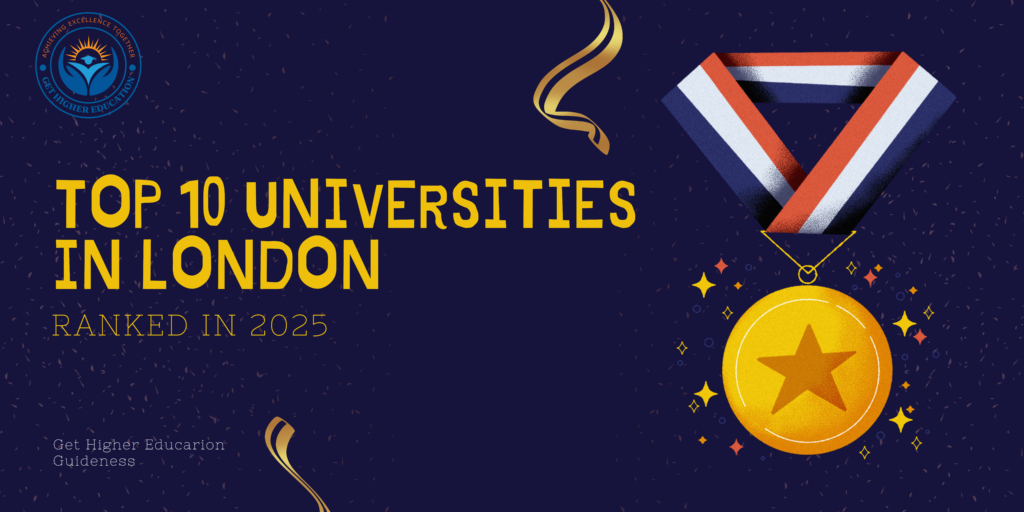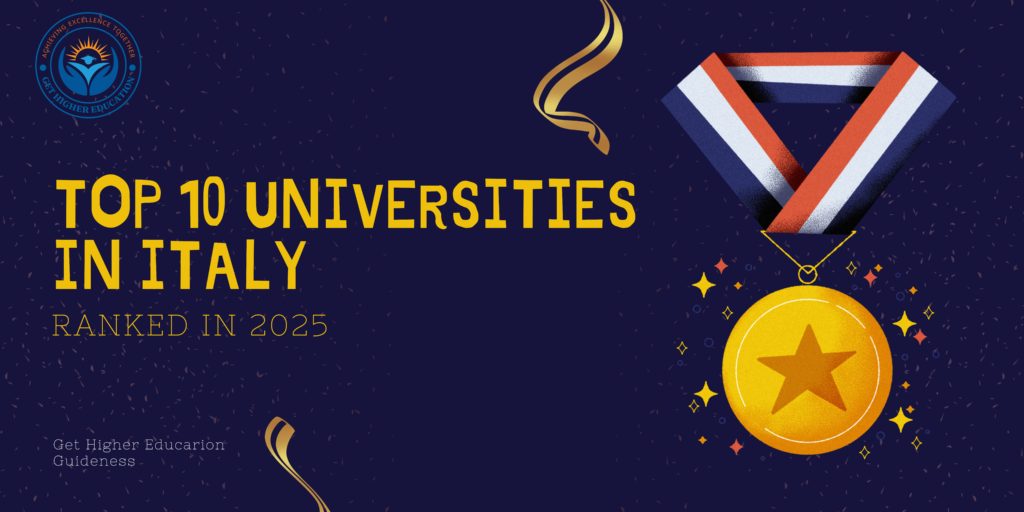Outline of the Article: Queen Mary University of London
1. Introduction
- Overview of Queen Mary University of London (QMUL)
- Reputation and global ranking
- Importance of QMUL in the UK education system
2. History and Background
- Establishment and early years
- Evolution into a leading university
- Notable milestones and achievements
3. Location and Campus
- Main campus in Mile End
- Other campuses (Whitechapel, Charterhouse Square, Lincoln’s Inn Fields)
- Student life and campus environment
4. Academic Programs and Faculties
- Overview of faculties and schools
- Popular undergraduate and postgraduate courses
- Research and innovation at QMUL
5. Admission Process and Requirements
- Undergraduate admissions
- Postgraduate admissions
- International student requirements
6. Tuition Fees and Scholarships
- Tuition fee structure for UK and international students
- Available scholarships and financial aid
- How to apply for scholarships
7. Student Life at QMUL
- Extracurricular activities and societies
- Sports and fitness facilities
- Cultural diversity and student organizations
8. Accommodation Options
- On-campus housing options
- Off-campus accommodation choices
- Cost of living in London for students
9. Career Opportunities and Alumni Network
- Job placement services and internship opportunities
- Notable alumni and their achievements
- Career support for graduates
10. Research Excellence and Contributions
- Major research areas and breakthroughs
- Collaborations with industries and institutions
- Impact of research on society
11. International Student Experience
- Support services for international students
- Visa requirements and application process
- Cultural adaptation and student support groups
12. Partnerships and Collaborations
- Academic collaborations with global universities
- Industry partnerships for research and internships
- Study abroad and exchange programs
13. Rankings and Reputation
- QS World University Rankings
- Times Higher Education rankings
- Reputation among employers and academics
14. Challenges and Areas of Improvement
- Student concerns and feedback
- University’s response to challenges
- Future plans for improvement
15. Conclusion
- Summary of key points
- Why choose QMUL for higher education
- Final thoughts and recommendations
FAQs
- What is Queen Mary University of London known for?
- How competitive is admission to QMUL?
- Does QMUL provide scholarships for international students?
- What are the best courses to study at QMUL?
- How diverse is the student body at QMUL?

Queen Mary University of London
1. Introduction
Queen Mary University of London (QMUL) is one of the most prestigious universities in the United Kingdom. Established as a part of the University of London, it has grown into an internationally recognized institution known for its research, teaching excellence, and diverse student body. Located in the heart of London, QMUL offers students an outstanding academic environment with access to world-class facilities, leading experts, and countless career opportunities.
With a rich history, the university is consistently ranked among the top universities in the UK and globally. It has a strong reputation in fields such as medicine, law, business, and engineering, making it a top choice for students from around the world. In this article, we’ll explore everything you need to know about QMUL, from its history and academic programs to student life and career opportunities.
2. History and Background
Queen Mary University of London has its roots dating back to 1785 with the founding of the London Hospital Medical College. It later merged with several institutions, including Westfield College and Queen Mary College, eventually forming QMUL as we know it today. The university became a part of the University of London in 1915, further solidifying its position in higher education.
Over the years, QMUL has made significant contributions to research and innovation, particularly in medicine, law, and engineering. It has produced renowned scholars, scientists, and leaders who have shaped various industries. The university continues to expand its influence globally through partnerships, collaborations, and cutting-edge research.
3. Location and Campus
Queen Mary University of London is primarily based in Mile End, one of the most vibrant areas in East London. The main campus is known for its picturesque setting, combining historical buildings with modern infrastructure. Besides Mile End, QMUL has other campuses in:
- Whitechapel – Home to the Barts and The London School of Medicine and Dentistry.
- Charterhouse Square – Focuses on medical research and postgraduate studies.
- Lincoln’s Inn Fields – Dedicated to law studies, close to London’s legal hub.
Each campus provides state-of-the-art facilities, including libraries, research labs, student accommodation, and social spaces. The university’s location in London gives students access to countless cultural, social, and professional opportunities, enhancing their academic and personal experiences.
4. Academic Programs and Faculties
QMUL offers a wide range of undergraduate, postgraduate, and research programs across various disciplines. The university is divided into three main faculties:
Faculty of Humanities and Social Sciences
- Law
- Business and Management
- Politics and International Relations
- English and Drama
Faculty of Science and Engineering
- Computer Science
- Engineering
- Physics and Astronomy
- Biological and Chemical Sciences
Faculty of Medicine and Dentistry
- Medicine (MBBS)
- Dentistry (BDS)
- Biomedical Sciences
- Public Health
QMUL is known for its research-driven teaching, ensuring students gain practical experience alongside theoretical knowledge. Many programs include internships, placements, and collaborative research projects, preparing students for the competitive job market.
5. Admission Process and Requirements
Admission to QMUL is highly competitive, and applicants need to meet specific academic and language requirements.
Undergraduate Admissions
- A-levels, IB, or equivalent international qualifications
- Personal statement and reference letters
- English language proficiency (IELTS, TOEFL)
Postgraduate Admissions
- Bachelor’s degree in a relevant field
- Statement of purpose and recommendation letters
- Work experience (for certain programs)
International Student Requirements
QMUL welcomes students from over 160 countries, providing tailored support for international applicants. They need to fulfill visa requirements, provide proof of English proficiency, and sometimes attend interviews, depending on the program.
The application process is usually completed through UCAS for undergraduate programs and directly via the QMUL website for postgraduate courses.
6. Tuition Fees and Scholarships
Attending Queen Mary University of London (QMUL) is a significant investment in a student’s future, and understanding the tuition fees and available financial aid options is crucial.
Tuition Fee Structure
The cost of studying at QMUL varies depending on the program and student classification (UK, EU, or international). Below is an estimated breakdown:
| Program | UK Students (Per Year) | International Students (Per Year) |
|---|---|---|
| Undergraduate (Arts & Humanities) | £9,250 | £20,000 – £25,000 |
| Undergraduate (Science & Engineering) | £9,250 | £23,000 – £27,000 |
| Medicine & Dentistry | £9,250 (UK) | £42,000 – £50,000 |
| Postgraduate Taught (General) | £11,000 – £15,000 | £20,000 – £30,000 |
| Postgraduate Research | £5,000 – £10,000 | £18,000 – £30,000 |
These figures are approximate and subject to change. Some specialized programs may have higher fees.
Available Scholarships and Financial Aid
QMUL offers numerous scholarships and bursaries to support students, including:
- Queen Mary Global Excellence Scholarships – For international students with outstanding academic records.
- Chevening Scholarships – For postgraduate students from eligible countries.
- Commonwealth Scholarships – For students from Commonwealth nations.
- QMUL Loyalty Award – Discounts for alumni continuing to postgraduate studies.
- Financial Hardship Bursaries – Assistance for students facing financial difficulties.
Students should check Queen Mary University of London official website for the latest scholarship opportunities and application deadlines.
7. Student Life at Queen Mary University of London
Queen Mary University of London offers a vibrant student experience that goes beyond academics. From extracurricular activities to social clubs, students have plenty of opportunities to engage, network, and enjoy their university journey.
Extracurricular Activities and Societies
Queen Mary University of London is home to over 300 student-led societies and clubs, including:
- Academic Societies (Law Society, Engineering Society)
- Cultural and International Societies (Indian, Chinese, African-Caribbean Societies)
- Hobbies and Special Interest Groups (Debate Club, Chess Club, Drama Society)
- Volunteering and Charity Organizations
Joining these societies helps students develop skills, make friends, and create unforgettable memories.
Sports and Fitness Facilities
The Qmotion Fitness Centre on campus provides:
- A state-of-the-art gym
- Indoor sports courts
- Personal training sessions
- Group fitness classes
Students can also participate in sports teams such as football, rugby, cricket, and basketball through the Queen Mary Students’ Union (QMSU).
Cultural Diversity and Student Organizations
With students from over 160 countries, QMUL is one of the most diverse universities in the UK. The university celebrates cultural events like:
- Diwali Night
- Chinese New Year Festival
- International Food Festivals
Student-led organizations ensure that everyone feels welcome and connected, making QMUL an inclusive and dynamic place to study.
8. Accommodation Options
Finding the right place to live is an essential part of student life at QMUL. The university provides both on-campus and off-campus housing options.
On-Campus Accommodation
QMUL offers modern, fully-furnished residence halls, including:
- France House – Ensuite rooms with shared kitchen facilities.
- Maurice Court – Affordable accommodation with communal bathrooms.
- Lindop House – Suitable for postgraduate students.
Benefits of on-campus housing:
✔ Close to lecture halls and libraries
✔ Secure and safe environment
✔ Inclusive of bills (water, electricity, internet)
Off-Campus Accommodation
Many students prefer private housing in areas like Stratford, Bethnal Green, and Canary Wharf, with rent ranging from £600 – £1,200 per month, depending on location and facilities.
QMUL’s housing service assists students in finding affordable and secure accommodation near the university.
Cost of Living in London for Students
Apart from rent, students should budget for:
- Food: £150 – £300 per month
- Transport: £100 per month (Student Oyster Card)
- Entertainment: £50 – £150 per month
- Miscellaneous: £50 – £100 per month
London is an expensive city, but careful budgeting and student discounts can help manage costs.
9. Career Opportunities and Alumni Network
Job Placement Services and Internship Opportunities
QMUL has a dedicated Careers and Enterprise Centre that provides:
- CV and interview coaching
- Internship and job placements
- Career fairs and networking events
The university has strong ties with top employers like Google, Barclays, PwC, and NHS, offering students valuable industry connections.
Notable Alumni and Their Achievements
QMUL has produced successful alumni across various fields, including:
- Sir Peter Mansfield – Nobel Prize-winning physicist.
- Bruce Dickinson – Lead singer of Iron Maiden and entrepreneur.
- Dr. Sara Kayat – Popular TV doctor and NHS professional.
Career Support for Graduates
Graduates benefit from lifetime career support through:
- Alumni mentorship programs
- Business start-up support
- Professional networking events
These services help QMUL students transition smoothly into the workforce and build successful careers.
10. Research Excellence and Contributions
Major Research Areas and Breakthroughs
QMUL is a research-intensive university with global contributions in fields such as:
- Medicine & Healthcare – Leading research on cancer treatments and cardiovascular diseases.
- Artificial Intelligence & Data Science – Cutting-edge innovations in AI and machine learning.
- Climate Change & Sustainability – Research on renewable energy and environmental policies.
Collaborations with Industries and Institutions
Queen Mary University of London partners with institutions like NASA, the European Space Agency, and the NHS to advance groundbreaking research.
Impact of Research on Society
The university’s research has led to:
- New medical treatments
- Technological advancements
- Policy reforms in the UK and beyond
11. International Student Experience
Queen Mary University of London (QMUL) is home to a diverse and inclusive student community, with students from over 160 countries. The university provides extensive support to help international students adjust to life in the UK.
Support Services for International Students
To ensure a smooth transition, Queen Mary University of London offers:
- International Orientation Program – Helps students familiarize themselves with campus facilities, academics, and life in London.
- Student Advice and Counselling Service – Provides mental health support, financial advice, and personal counseling.
- Academic English Support – Helps non-native speakers improve their academic writing and communication skills.
Visa Requirements and Application Process
International students usually require a Student Visa (Tier 4) to study in the UK. The basic requirements include:
✔ Confirmation of Acceptance for Studies (CAS) from Queen Mary University of London
✔ Proof of English language proficiency (IELTS/TOEFL)
✔ Sufficient funds to cover tuition and living expenses
✔ Valid passport and supporting documents
Students are advised to apply for their visa at least 3 months before their course starts.
Cultural Adaptation and Student Support Groups
Adjusting to a new country can be challenging, but QMUL makes it easier through:
- Cultural Societies – Groups representing different nationalities (Indian Society, African Society, Chinese Society, etc.).
- Buddy Programs – Pairing new international students with experienced students for guidance.
- Global Café Events – Social events where students from different backgrounds interact and make friends.
12. Partnerships and Collaborations
Academic Collaborations with Global Universities
QMUL partners with top universities worldwide, offering exchange programs and joint research initiatives. Some notable partners include:
- Harvard University (USA)
- National University of Singapore (NUS)
- Tsinghua University (China)
- University of Sydney (Australia)
These partnerships provide students with opportunities for study abroad programs, dual degrees, and global networking.
Industry Partnerships for Research and Internships
Queen Mary University of London collaborates with industry giants such as:
- Google & Microsoft (for tech and AI research)
- NHS & World Health Organization (WHO) (for medical advancements)
- BBC & Reuters (for media and journalism programs)
These connections enhance students’ internship and employment opportunities, giving them a competitive edge in their careers.
Study Abroad and Exchange Programs
Students at QMUL can spend a semester or a year abroad at partner institutions. Benefits of studying abroad include:
✔ Exposure to different educational systems
✔ Development of intercultural communication skills
✔ Increased employability and global career opportunities
13. Rankings and Reputation
Queen Mary University of London consistently ranks among the top universities in the UK and globally.
QS World University Rankings
- 2024 Overall Ranking: Ranked in the Top 150 universities worldwide
- Medicine & Dentistry: Ranked among the Top 50 globally
- Law & Business: Among the Top 100 programs worldwide
Times Higher Education (THE) Rankings
- Ranked among the Top 20 universities in the UK
- Research Excellence Framework (REF): Recognized for world-leading research in various disciplines
Reputation Among Employers and Academics
Employers highly value QMUL graduates due to their:
✔ Strong academic background
✔ Practical experience gained through internships
✔ Global perspective and multicultural adaptability
14. Challenges and Areas of Improvement
While QMUL is a top-tier university, there are areas where students have voiced concerns.
Student Concerns and Feedback
Some challenges students have highlighted include:
- High Cost of Living in London – London is one of the most expensive cities for students.
- Large Class Sizes in Some Courses – Popular courses may have high student-to-faculty ratios.
- Competitive Admission Process – Securing a place in certain programs can be difficult due to high demand.
University’s Response to Challenges
QMUL is actively working on addressing these concerns by:
✔ Increasing scholarship and financial aid opportunities
✔ Expanding campus facilities and hiring more faculty
✔ Providing additional academic support services
Future Plans for Improvement
- More Affordable Housing Options – Partnering with private housing providers for subsidized student accommodation.
- Expanding Digital Learning Tools – Introducing more online courses and hybrid learning options.
- Enhancing Career Support Services – Increasing industry partnerships and job placement programs.
15. Conclusion
Queen Mary University of London is one of the best institutions in the UK, offering a world-class education, outstanding research opportunities, and a diverse and vibrant student life.
With top rankings, strong industry connections, and a prime location in London, QMUL provides students with everything they need for a successful career. While the cost of living in London is high, the university’s scholarships, career services, and networking opportunities make it a valuable investment.
Whether you’re an undergraduate, postgraduate, or international student, QMUL offers a dynamic and supportive environment to help you achieve your academic and professional goals.
FAQs
1. What is Queen Mary University of London known for?
QMUL is known for its strong research output, prestigious medical and law programs, and global partnerships. It is also famous for its diverse student community and central London location.
2. How competitive is admission to QMUL?
Admissions at QMUL are highly competitive, especially for programs like Medicine, Law, and Business. Strong academic records and personal statements are crucial for admission.
3. Does QMUL provide scholarships for international students?
Yes, QMUL offers several scholarships and financial aid programs for international students, including Global Excellence Scholarships, Commonwealth Scholarships, and Chevening Scholarships.
4. What are the best courses to study at QMUL?
Some of the most popular and high-ranking programs at QMUL include:
✔ Medicine & Dentistry
✔ Law
✔ Engineering & Computer Science
✔ Business & Management
5. How diverse is the student body at QMUL?
QMUL is one of the most internationally diverse universities in the UK, with students from over 160 countries. It has a wide range of cultural societies, support groups, and inclusion programs to support global students.



